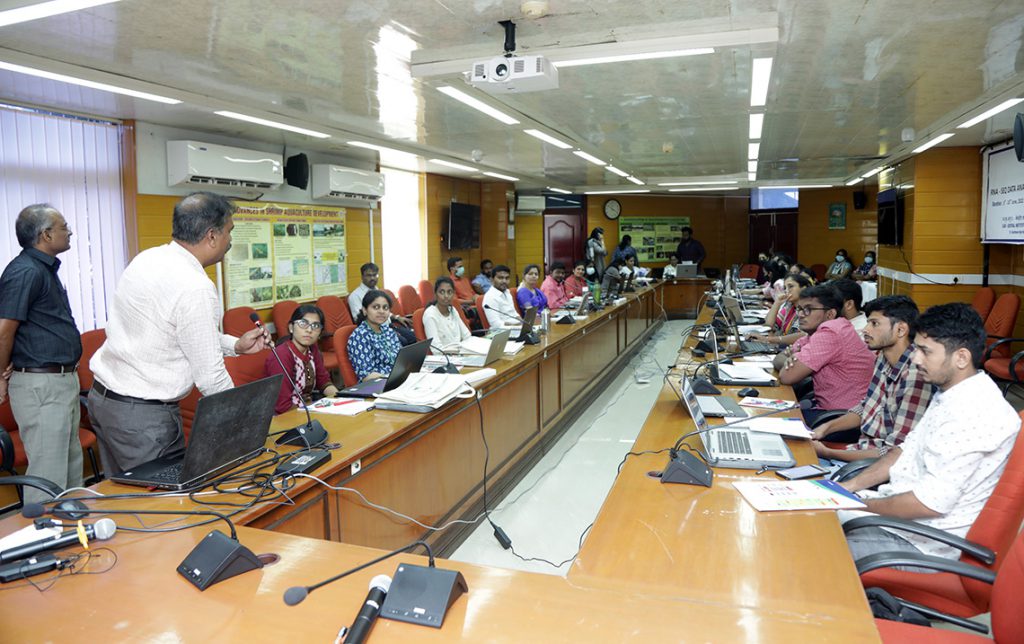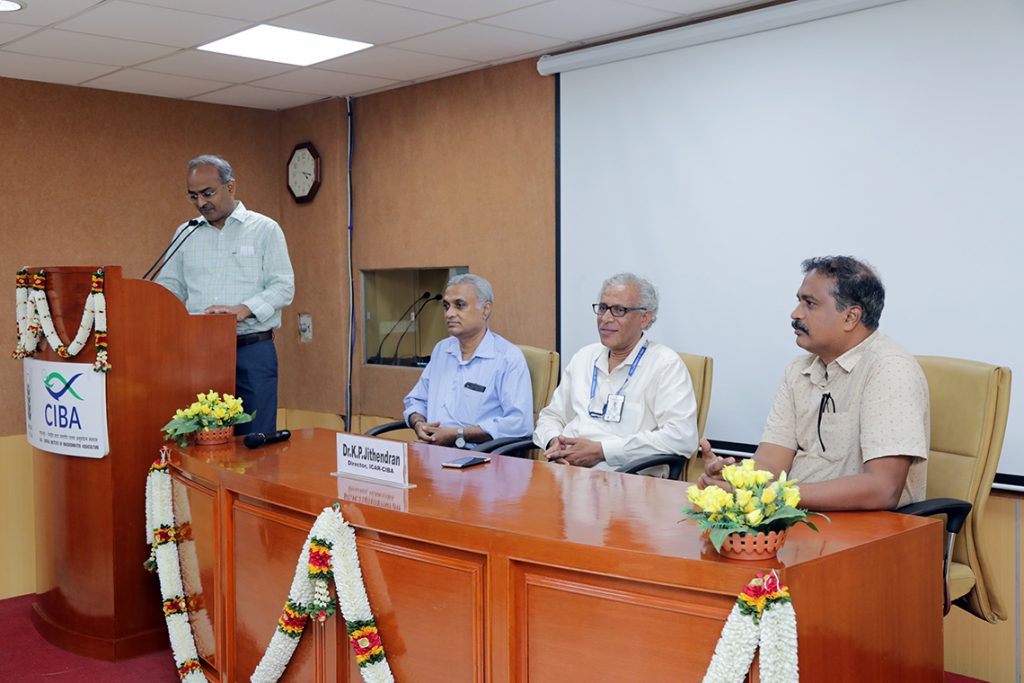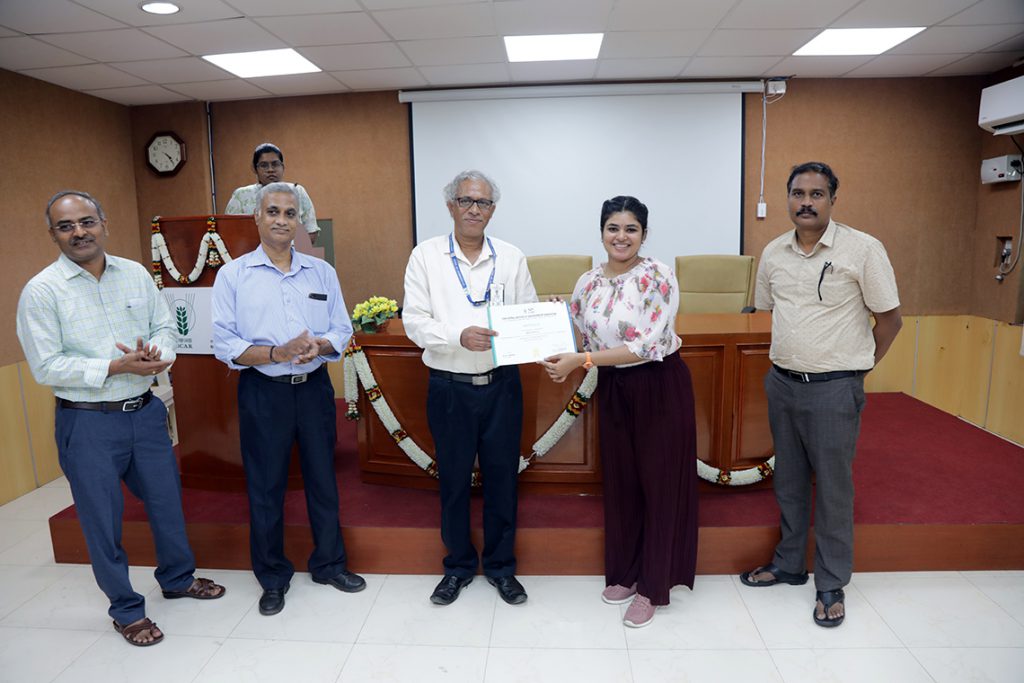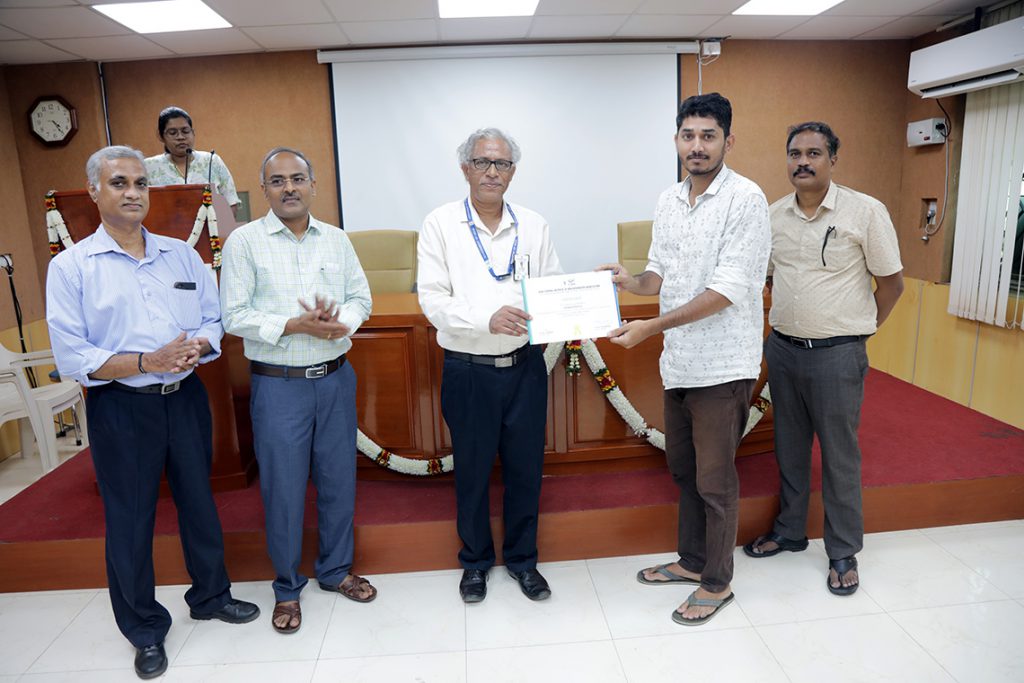In recent years, RNA sequencing (RNAseq) on high-throughput sequencers has become an important tool for discovery of functional information in candidate species of interest. However, the analyses of RNAseq datasets require high computing hardware and bioinformatics skills. The know-how on conducting computational analyses on these datasets is lacking among researchers. In this context, ICAR-CIBA has conducted a ‘Hands-on training program on RNAseq data analyses’ during 8-10, June, 2022. Twenty five participants (research scholars/scientists/assistant professors) from various institutes/universities/colleges like ICAR-CIBA, Chennai; ICAR-DCFR, Bhimtal; ICAR- CIFE, Mumbai; ICAR-IIHR, Bangalore; Fisheries College and Research Institute, Thoothukudi; College of Veterinary and Animal Sciences, Wayanad; Tamil Nadu Agricultural University, Coimbatore; Madurai Kamaraj University; Madurai; University of Madras, Chennai; CSIR-NIIST, Thiruvananthapuram; CSIR-National Institute of Oceanography, Goa; National Institute for Research in Tuberculosis, Chennai; Maharajas College, Ernakulam; St. Theresa College, Ernakulam and University of Agricultural Sciences, Bangalore attended the training programme.
During the training, each of the trainees was given access to a Linux server where they did hands-on learning by performing every analysis on their own. The topics covered during the training were, introduction to Linux environment & R-stats, downloading RNA-seq datasets from GenBank and performing quality trimming, generation of denovo assembly of transcriptome and discovery of unigenes, genome-guided analyses with RNAseq data to establish differentially expressed transcripts and annotation of genes. A training manual covering all the above aspects was prepared and distributed to participants.
During the valediction, the participants expressed their complete satisfaction as every session of the program is made hands-on. Dr. K.P. Jithendran, Director, ICAR-CIBA, emphasized the importance of bioinformatics in the present era and advised trainees to build upon the training. Dr. M.S. Shekhar, Principal Scientist and Scientist In-charge, Nutrition Genetics and Biotechnology Division (NGBD) requested all the trainees to apply the learned knowledge in their own studies. The scientists of NGBD division, M.S. Shekhar, Sherly Tomy, J. Ashok Kumar, K. Vinaya Kumar, B. Sivamani, Raymond J. Angel and Misha Soman conducted this hands-on training.




